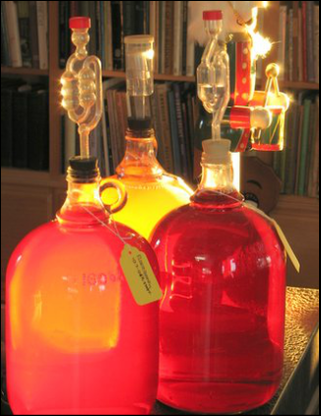 Yes... we've been absent for some time due to 'technical difficulties,' summer vacations, busy schedules and the like. This column conjures images of summer's past and was originally published in September of 1992. As always... please enjoy it as much as we did. Here we are, Labour Day past and gone and it just didn't seem right this year. Labour Day is one of those gloomy holidays which isn't so much a holiday as a warning. After this, Labour Day says “forget about holidays” and – this far north, anyway – “forget about summer.” Summer may have a couple more weeks running time according to the almanac, but Labour Day might just as well be the official kiss-off. We all know what comes after Labour Day, right? School. Shades of the prison house about to close and all that. At least, that's the way it has always been. This year the poor teachers, my wife included, were shut away on the 31st of August and classes actually began gearing up on the 2nd of September. My school days are behind me, but the thought of starting school before Labour Day sends a chill down the spine. 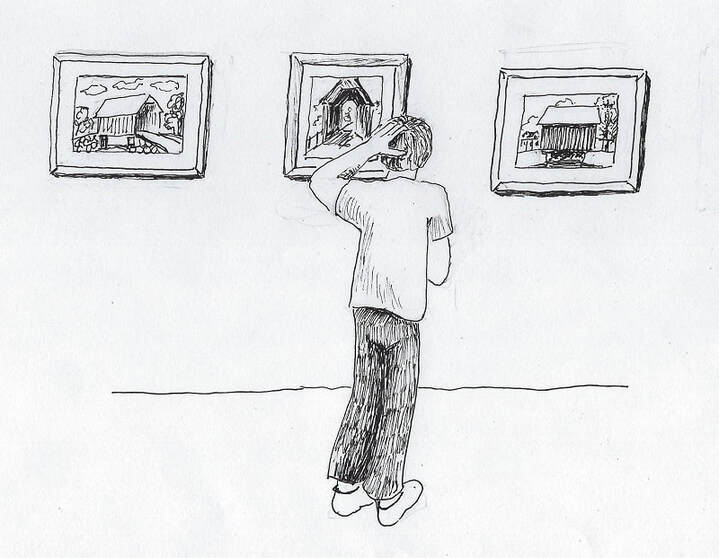 The summer and recent heat reminded us of this column, and just how far technology has come. Originally published in August of 2001... as always, lightly edited and please enjoy. A recent trip into Fahrenheit-land brought with it pleasant encounters with family we have only seen – all at once – one other time, on the occasion of the hundredth birthday of a much-loved aunt of my wife’s. This gathering was for a memorial service and a committal, but the person being remembered was so special that tears were replaced by a seemingly endless series of “Do you remember...?” stories and much laughter. I confess to not being exactly up for another several-thousand-kilometre jaunt when we seem to have spent the a lot of the summer driving long distances in the car, either to see people, or to be (willing) tour-guides for visitors. I think I can safely say that we have done most of the touristy things that people ‘from away’ are likely to want to do. Although I have to admit that we have once again avoided doing the covered-bridge thing. 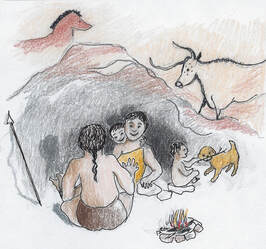 © Alice Whitney 2019 © Alice Whitney 2019 What is it about some people which allows them to go on acquiring things when the need has passed? The preceding question is not rhetorical. The "people" in question is us. I was reading an article a while back, part of a collection of readings in anthropology. Anthropology is not normally a subject which entices me to read on but in this case my eye was caught by what seemed to be a piece describing a new view of some of the 'hunter-gatherer' tribes of southern Africa. There is a sequence of survival techniques through which mankind has ensured its continuance over the millennia, each one presumably a little more sophisticated than the last; and leading (of course) by a steady progression up to us. Never before us has there been a society in which so many people were able to concern themselves with matters that did not directly concern the provision of food. at a good hunter-gatherer would have to say about it all 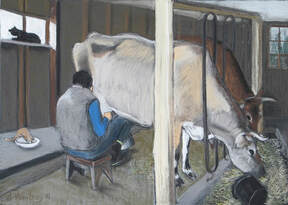 © Alice Whitney 2011 © Alice Whitney 2011 After the cows have been watered, the gutter shovelled out, new bedding distributed, water buckets removed and refilled for the next time, hay put down, and short feed distributed, there is little left to do but sit down and milk. It takes a while to get to that point, of course, and many thoughts float through the brain in the interim, but one only gets down to serious thinking when one hauls out the milking stool, and plunks it down beside Cow A. Before that, most of the thinking has been relatively practical. There is, for example, the perennial issue of how to muck out the steer. As far as I can tell, this is not a question of a particular steer. Each steer we have had has seen the world in very much the same way. His tendency is to see you and the shovel coming and to move over so as to be standing exactly in the spot which most needs cleaning. The cow is used to being shoved a bit to move her so the milker can sit down beside her, but steers just never seem to see the point. It is while milking that one has the chance to turn over the big issues, like moving the steer. We had a chuckle reading this column originally published in May of 1995. In an effort to attribute the author of the poem, we learned that we aren't the first to have undertaken the task. We urge you to read the Wikipedia entry here as we did. Enjoy.
A centipede was happy – quite! Until a toad in fun Said, "Pray, which leg moves after which?" This raised her doubts to such a pitch, She fell exhausted in the ditch Not knowing how to run. The modern world, like the centipede, seems continually to come up against questions nobody ever thought to ask. The result, it seems to me, is often a dilemma like the centipede's. Consider the "child-proof" bottle cap. These things turn up almost everywhere, except on liquor bottles and cigarette packages. For a long time now I've been involved in a battle of wills with the staff of Sharp's Drug Store over the question of child-proof caps. They're a good crowd, the staff at Sharp's, but you have to watch them. A friendly smile and a witty remark come with every prescription and you leave the store in good humour. Not until you get home do you remember to check the bottle and by then it is too late. Yup, another child-proof cap. Like many of the old houses scattered through the rural countryside, this house is situated in a way that is obviously the fruit of careful consideration. The original structure was timber-framed sometime in the nineteenth century. Placed so that it nestled in a bit of a fold in the hillside, it faces southeast down the valley before it, turning its shoulder to the east and its narrow sides to the northeast and southwest respectively. What a difference between those two sides! To the southwest, where the sun streams in all winter, were windows and a door. Here in the heart of winter was light and life, the image of Easter and the Resurrection.
The opposite side of the house, the side that faces northeast, though, was as if closed against winter and its storms, closed against the assault of all the life-threatening forces of the cold and of the dark, those accompaniments of Good Friday and the tomb. As the years passed that original structure grew and changed, its life the reflection of the life of the family that grew up within it, generation after generation. What had been a single-storey cabin shed its roof and developed a new one, high enough now to allow two bedrooms and a hallway, with a proper set of stairs leading upwards. Then, during the early years of this century, the house sprouted a new wing, built toward the hill behind, with dining room and kitchen downstairs and a large bedroom upstairs with two tiny bedrooms behind it for the youngest children. 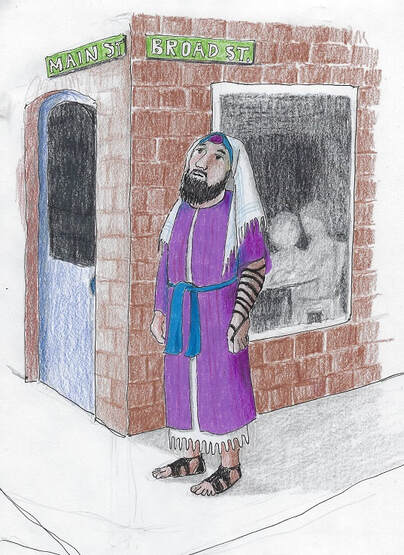 © Alice Whitney 2019 © Alice Whitney 2019 The day started all right, I suppose, although I really do think there must be a better way to start than by getting up. But that is no doubt one of those numerous signs that this is indeed a fallen universe, so I put a good face on it. Not too good a face, mind you, lest I be caught out in my own overcompensation and stand accused of being one of those scribes and/or Pharisees who apparently were given to fasting on street corners and looking weak but saintly, which got them lots of credit in the eyes of the passers-by who were no doubt themselves rushing to the nearest kosher fast-food outlet in downtown Jerusalem. Frankly, I’ve never seen that there was all that much to fasting on street corners. If you think about it carefully and run down the list of street corners you have known, I’ll bet that fasting is about all you can do on most of them, and if you stand about fasting on street corners these days, you are more than likely going to get run in for loitering, which is not exactly what the Pharisees were doing, as I understand it. But times change. 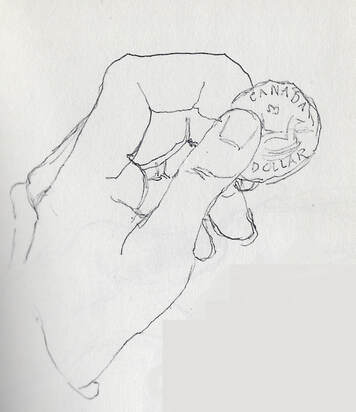 By something after three o'clock, having already done seven impossible things but failed to get lunch, I was whistling down to Saint John for a four o'clock appointment that I knew I was going to be late for but not extravagantly late. If you are going to be really absurdly late there is no need to push so hard on the accelerator as to cause a deflection in the fire wall, but if you are only going to be awkwardly late there is rather a tendency to apply the spur to your mettlesome steed. As it was I pulled up in Saint John and was only halfway to the building before the sound of my approach caught up with me. Something told me even then that I was going to be too late to get to the City Market, before it closed, to get the fish I said I would bring home for dinner. Then I thought of my pocketbook and the errand to the bank that I had been supposed to do before I got to my appointment so that when I emerged from the appointment I would have the needful with which to negotiate the transfer of ownership on a couple of fillets of cusk or whatever. (Why do fish get saddled with such appalling names? Cusk! I ask you, where did Adam get that one? And how would you feel about being called a flounder? We should have a Be Nice to Fish Week somewhere between the Rehabilitation of Arch Supports Week and the Slime Mold Festival Week.) 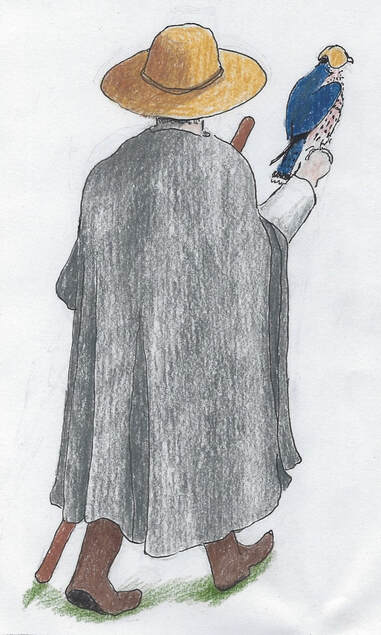 After a plethora of winter come spring columns, we yearned for something a bit different. For a slight change in tone, we have opted to post what we affectionately refer to as a "word column"... today's "word" being Pilgrim. This was originally published on July 3rd of 2012. Please enjoy. Three days of much needed rain. Nothing to do outside and so I took a few choice moments to go digging in the dictionary – the Oxford English Dictionary (OED), one of the greatest works of scholarship ever produced in the western world. No other language has a dictionary like it. I have a special fondness for this huge work (22 volumes in print), partly because I added a word to it myself, not long ago. I had been reading (on line) the text of a religious treatise written in the sixteenth century and came across an unfamiliar word. Turning to the OED online I was surprised not to find an entry for the word in question. So, I wrote an email to Oxford, mentioning the word in question and where I found it and quoting the passage in which it appeared. I sent it off, never expecting to hear more, but feeling virtuous for having sent it. Two days later I had an email from one of the staff saying that although the work I was looking at had been studied carefully long before, somehow the word I had queried had been overlooked. Although there are scads of “new” words coming into the language every day – Google as a verb for example – the word I had queried would be added to the “very small” list of old words not already in the dictionary. |
Words & ImagesWe moved to our farm in Sussex, New Brunswick from Toronto in 1977, only moving away in 2014. Archives
April 2020
Categories
All
|
